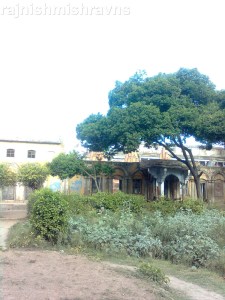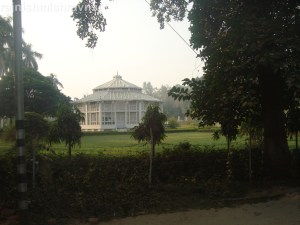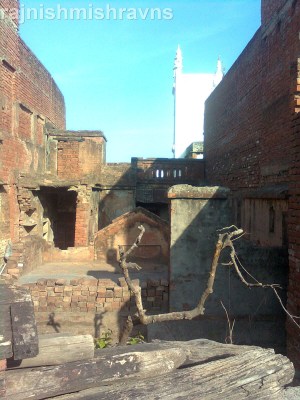The relationship between a man and a city must not be seen with generalizing glasses. They show only partial images. To understand the relationship one has to look into the process of socialization and how the city and its elements are internalized by an individual even unconsciously. Moreover, the change in the mechanism, depth and effects of this internalization, with the changing times must also be taken into account. Forgive me if the post turns a bit heavy and slow in the process. It’ll return to its old attached style soon.
A person’s relations with their city are developed over a long stretch of time. They may not be developed at all too, in the same time period. And then strong relations may be forged in an instant; in the first glimpse of a city. When men used to take birth and die in the same city, they used to have the maximum possible time in their lives to develop relations with their city and fellow citizens. Kasi’s case had been different: at least in the religiously inclined past of India. People born in many other parts of the country wished to gain salvation by dying in Kasi. Thus, they were attached, not to the city itself, but to the idea of death in the city. The purpose of their arrival to the city used to be death, and theoretically they should not have developed any roots or relations. Many of them tried and succeeded in getting what they had wanted all their lives: death in Kasi. Some of them took time sufficient to develop relations and to actually send their roots deep into the soil of the city, deep enough to actually cause the eventual shift of the younger members of their family with no plan to die in their near future. These persons were then naturalized as Banarsis in a couple of decades, and their children were all Banarsis.
It took decades for a city back then to enter the identity stream of a person: years after which the city accepted the man and vice-versa. They had years at their disposal back then. They knew that they’d stay in the city till death, not the city’s, their death. They had their roots there, and their employment too. My father’s old friends, many stayed in Kasi and many left for larger cities or cities of their posting in their jobs of public sector. My old Banarsi friends, barring a few, have all left the city, most of them are in the private sector. Those who stayed back are not satisfied with their life. They feel stuck and stagnated. One of my friends had been working in the same organization for a decade now. He doesn’t see much scope for his increments or betterment. He lives in his father’s house. Another runs a shop and lives in his father’s house. And then there’s another in the insurance sector…father’s house. Those who left Kasi either own are are in the process of becoming the owner of their own house. They take home much more than their Banarsi friends. They are happy too.
So, those who stayed in their city of birth have generally not fared as well as their friends who left. They don’t feel about it as I do, probably because they resent its holding them back. My friends out there, in the world beyond Kasi, will never return. They have also shifted their parents to their new base camps. Although their parents do keep returning occasionally, especially in festivals that fall in winter season, viz. Diwali or Durga Pooja. The generation to which our parents belong was a rooted generation. Ours is a different one, and the one born in the 1990’s is even more different. About my generation I have internal and first hand knowledge. The same can not be said about the next one. I don’t understand them, or don’t want to. Their hometown, it seems, exists somewhere around the centre of their social online/mobile network.
We used to have time. As there were no mobiles back then, our movements could not be minutely traced, neither could be our use or wastage of time. We used to roam (not the millennial meaning) freely, and frequent our favourite haunts regularly, with our friends or alone. Places, like people, were important and we used to be physically present with our friends in physical three dimensions: no web based networks or virtual presence then. We used to be there, the old fashioned way. No, I do not belong to the antiquity. I blog, you see. I keep myself active on social network sites too. It’s only that I have had both virtual and real kinds of presences at places and with people, with emphasis on the real. On the other hand, changing times have tilted the balance in favour of the virtual nowadays. How can people develop intense relations with one physical space then? How can they love and miss their hometown? Do they have one?

This work is licensed under a Creative Commons Attribution-NonCommercial-NoDerivs 3.0 Unported License.



Kasi is very dear to your heart. Thanks for sharing. . . .Namaste . . . . .Anne
Yes it is. Thanks for reading about Kasi, loving it and understanding the city. Pranam